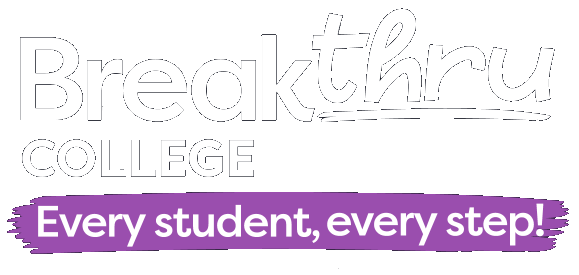
Personal carers are an increasingly important role in Australian society. With more than 3,500 new Personal Care Worker jobs being created every year, the demand for this critical role is expected to only increase as Australia’s population continues to age.
The role of a Personal Ccarer is also increasingly diverse, requiring workers to provide support to people who need assistance with daily living due to age, disability, or illness. The role requires compassion, patience, and specialised training to ensure the wellbeing and dignity of clients.
Personal carers work in a wide range of environments, including private homes, aged care facilities, disability support services, and hospitals. As demand for care services grows, becoming a personal carer presents a stable and fulfilling career opportunity with lots of emerging pathways for advancement.
If you’re interested in becoming a Personal Carer, this guide will provide you with a strong outline and useful tips to set you up for a successful and fulfilling career, including required skills, qualifications, and training options.
The personal care industry in Australia is a growing sector driven by an ageing population and increased demand for disability support services. The industry is supported by government departments such as the Department of Social Services and Department for Health and Aged Care, in addition to Government agencies such asas the National Disability Insurance Agency, which oversees the National Disability Insurance Scheme (NDIS). Together, all of these departments and agencies work together to ensure the needs of the community are met and high standards of care are upheld.
The demand for personal carers is projected to increase as the population continues to age. This opens up a wide range of employment opportunities, with roles available in both private and government-funded services. The sector offers flexible work arrangements, including full-time, part-time, and casual employment. Carers can work independently or as part of a larger healthcare team, depending on their area of expertise.
Beyond the day-to-day care required of the role, personal carers often play an important role in supporting the emotional wellbeing of their clients. People with disability and ageing Australians have a much higher risk of feeling lonely or becoming socially isolated, which means personal carers often need to fill this gap to support each individual’s overall wellbeing. Many clients consider a strong relationship and shared interests with their personal carers and support workers to be one of the most important factors in choosing a support service, highlighting the high emotional and social impact of the role.
Effective communication skills enable personal carers to interact clearly with clients, families, and healthcare professionals. Active listening helps them understand client needs and provide reassurance. Conflict resolution and problem-solving abilities are also valuable, as carers may face challenges that require careful handling.
Empathy and patience are crucial traits for a personal carer. Understanding the struggles of individuals who require assistance fosters a compassionate and respectful approach. Building trust and maintaining a positive rapport with clients ensures that they feel comfortable and secure.
Physical fitness is another key requirement, as the role often involves lifting and assisting clients with mobility. Carers need strength and stamina to perform daily tasks while maintaining their own wellbeing. Adhering to workplace health and safety regulations is essential to prevent injury.
Technical skills include knowledge of medical terminology and care techniques, medication administration, and the use of assistive devices and mobility aids. Mental health first aid and crisis intervention skills are also valuable for those working with clients who have cognitive or psychological conditions.
Formal training is not mandatory for personal carers but is often a highly preferred prerequisite for many employers in the industry. rThe primary certification that most employers look for is the Certificate III in Individual Support, which provides foundational skills in personal care, infection control, and first aid. This qualification also includes a mandatory practical placement, ensuring hands-on experience before any prospective care worker formally enters the workforce
For those seeking advanced roles, you could consider a qualification such as the Certificate IV in Mental Health or Certificate IV in Disability Support, which offers more advanced training for those supporting people with disability. These qualifications prepare you for more advanced roles, such as senior support worker or team leader, and are often sought after by employer when hiring for more senior positions.
Depending on the employer and the type of care delivered, some additional training may also be required. Certifications in first aid and CPR are often mandatory across the industry, including strong knowledge in manual handling, and in some cases medication assistance are commonly needed. Additional training in palliative care, dementia or behavioural management training may also be beneficial, especially for those working in the aged care sector.
There are a wide range of personal carer training programs available for anyone looking to study in Australia. The most valuable programs are offered by Registered Training Organisations (RTOs) like Breakthru College, who deliver nationally recognised qualifications that you can use right across Australia. Many of the available study programs include flexible delivery, including online, face-to-face and blended courses. Practical placements in aged care or disability support settings are required as part of the training.
The main qualifications sought after by employers in the Aged Care sector include the Certificate III in Individual Support (Ageing) and Certificate IV in Ageing Support. Both of these qualifications are ideal if you’re looking to work in an aged care facility, with the latter ideal for those looking to obtain a more senior position. This training in both of these qualifications covers essential scenarios that you’re likely to encounter on a day-to-day basis, such as dementia care, palliative care, and general aged care services. Students learn how to assist clients with personal hygiene, mobility, and daily activities while maintaining their dignity and independence. Practical experience in residential aged care environments is usually required to develop hands-on skills and confidence in providing care prior to formally completing this qualification.
Similarly, training in the disability support sector is largely governed by two key qualifications: Certificate III in Individual Support (Disability) and Certificate IV in Disability Support. Training delivered as part of these qualifications will help prepare carers to assist people with disability in various settings, including private homes and specialised disability support facilities. Training programs cover mobility assistance, communication aids, and behavioural support techniques. Carers learn how to support clients in maintaining independence, participating in community activities, and using assistive technology. This specialised training equips carers with the skills needed to create inclusive and empowering environments for people with disability.
A career in personal care offers various opportunities for growth. Experienced carers may progress into leadership roles, such as Team Leader or Service Manager.
Continuing education is important in the personal care industry, ensuring you stay on top of emerging best practice and allowing for new opportunities for career advancement. Mentorship roles are also an option for experienced carers, allowing them to share their knowledge and experience to help strengthen the industry and ensures a high standard of care.
A career as a personal carer offers a unique opportunity to make a real difference in people’s lives. By providing essential support, carers contribute to the dignity, comfort, and independence of those in need. With the right training and commitment, personal carers can enjoy a stable and fulfilling profession that offers flexibility, career progression, and personal satisfaction. Whether working in aged care or disability support, personal carers are vital members of the healthcare industry, ensuring the wellbeing of individuals and strengthening the community as a whole.
You do not require a formal qualification to work as a personal carer, though for many employers a Certificate III in Individual Support is often the minimum requirement.
Most Certificate III courses take between 6 to 12 months, depending on study mode and provider.
Many training providers offer online theory components, but practical placements must be completed in person.
Work placements during training provide essential experience before entering the workforce.
A home care assistant provides support in a client’s home, while a personal care assistant may work in multiple different settings, such as aged care facilities, hospitals, or disability support services.
Salaries vary but generally range from $25 to $35 per hour, depending on experience and location.
Yes, most employers require a National Police Check and a Working with Children Check if applicable. Check and a Working with Children Check if applicable.

